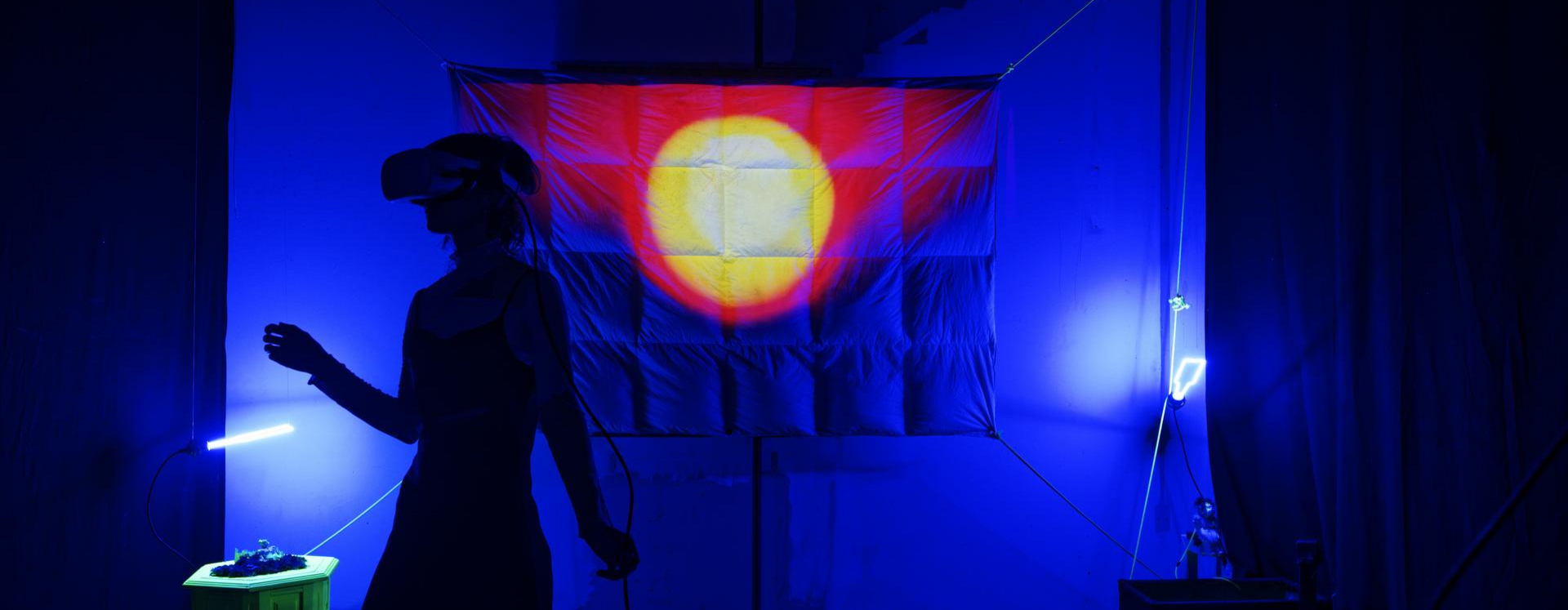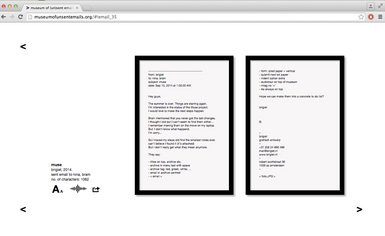An email museum - a museum of thoughts’ next best option
"The Museum of (un)sent emails is clearly not a film. Or, it is not a film yet. But with this online museum platform I wanted to research the multitude of individual voices hidden among mass e-communication. I was looking for a way to find inspiring stories and observe ways of interaction between people that could be useful for scriptwriting or writing and making in general. One of my aims was to use an email museum or archive as a research platform through which I could gain insight into how people communicate, what they convey to each other, how they deal with certain topics, how they (ab)use the email medium…
Archive in the spotlight
The online email archive is the core of the Museum of (un)sent emails as well as a starting point for my content research. However, I believe it’s not necessarily relevant only to my research. Every part of the online museum is public and the email contents can be used by others as well. I find it nice that something private can be shared publicly based on a mutual agreement: emails are donated to public use but on the email author’s terms.
And what am I personally looking for in the email archive? I think I’m intrigued by the intimate character of emails. They are revealing parts of their author’s private sphere of life - each of them in a completely unique way. This particular sincerity of “the private” captivates me. Looking into the email archive for me is a bit similar to peeping through a window of someone else’s flat. Not in order to control or spy, but to see and understand how other people live or organize their lives. I have always been drawn to this.
What do words tell us?
In an email conversation, I’m really fascinated by the relationship between person a and person b. When I look at a random email in the museum archive, I can start asking so many questions. Who are these people involved in email conversations? How much does an email say to an outside observer, and how much do the writers keep for themselves? If I imagine these two characters, the email author and the addressee, how close am I to who they really are? Is the character of the addressee really absent because he or she doesn’t have a voice, or does he or she become visible through the words of the email author? How do the email authors think, what do they consider important, how do they formulate their communication? For me these are essential questions for character analysis. At a later stage, I would like to incorporate my findings from the character analysis into my (script)writing or making. However, at the Master of Film I won’t graduate with a text or film script – but with the online email museum - a machine for generating many authentic character voices and storylines.
Museum as a playground
Apart from the project offering space for research, I also set to play around with the framework of a museum. So the title of the project is not there just to sound good. I wanted to look into the concept of an institution that conserves certain artifacts for posterity. I am of course aware that this topic has been discussed many times throughout the history. But I was not looking for something new. I wanted to re-assess the institution of the museum through my art practice. In this project, museum parameters determine the rules of the play – they limit and direct my artistic playground. But to me limitations are not dead ends but rather incentives for creative solutions.
Museum as a mediator, collaborator and host
I’ve noticed that online museums and galleries find it very difficult to compete with physical institutions because they lack the immediate presence and experience of the exhibited works. But can an online museum use its shortcomings and turn them into its benefits?
I’m slowly realizing how flexible my email museum platform actually is. Its only limitation is the medium of collected and exhibited items, but from that point on it can cover any imaginable theme. A liberating moment for the museum was also upgrading the museum’s audio guide to a radio podcast that is attached to individual emails in the exhibition space. By means of a radio program you can leave the framework of the museum and create a much more engaging space for the visitors.
During the graduation show I will present a curatorial proposal in which the Museum of (un)sent emails leaves its virtual walls and becomes a host and a collaborative curator of a bigger event – the graduation.
Interview by Jan-Ewout Ruiter, March 2015



